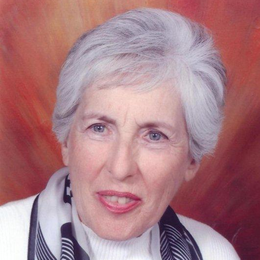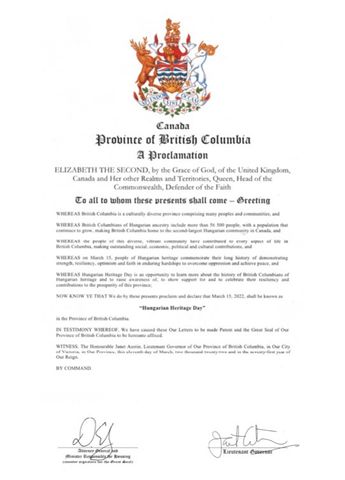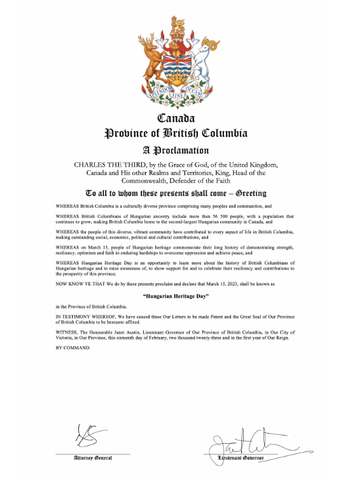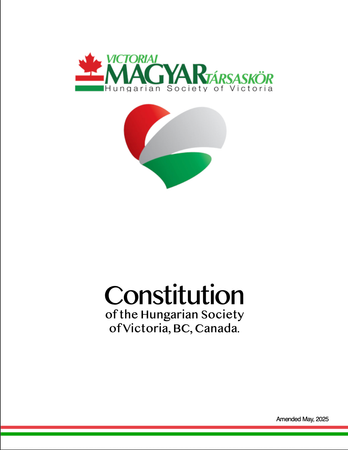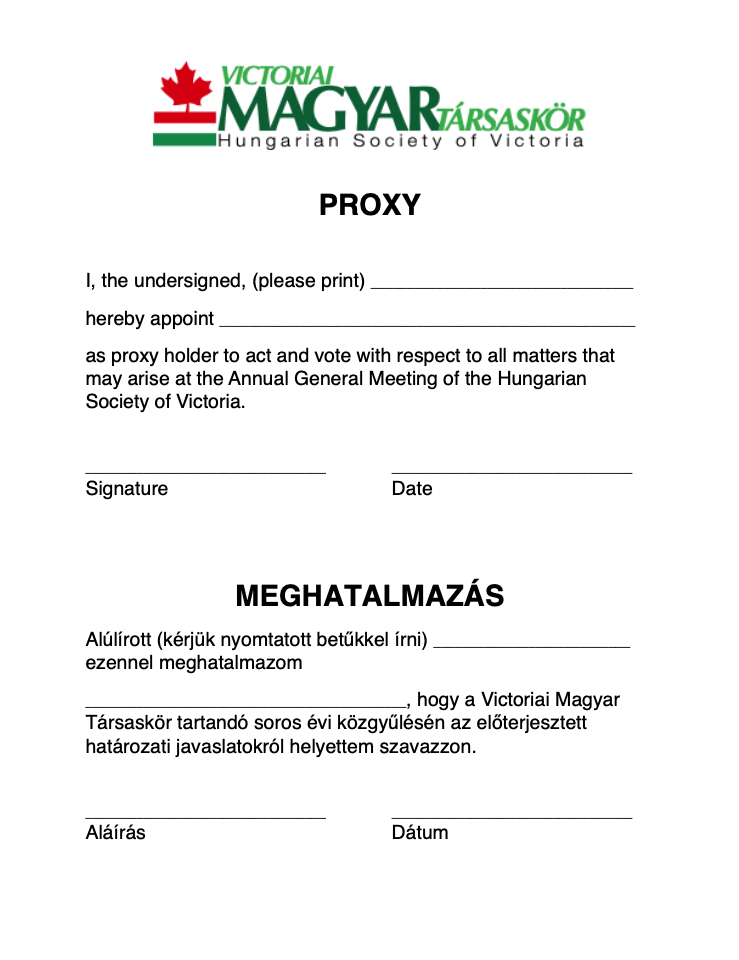The Hungarian Society of Victoria (HSV) was established in 1966. It was a modest organization at the time, owing to the fact that the city’s Hungarian community was smaller than today and the community still lacked the experience and financial needs that make an organization effective. Also, it took time for the new association to start growing roots and finding common accord that is essential in strengthening the life of a community. Another factor was that the Hungarians in Victoria had come from different areas of the country, as well as different parts of Hungary and from different ways of life.
We are, however, proud to report that today the HSV is enjoying a cultural renaissance. We have a fine cultural centre of our own, complete with up-to-date facilities which are being used to full capacity. Let us, however, examine the Hungarian community of Canada at large and see the part our local society has played in it.
The history of Hungarians in Canada goes back to 1886. It was at that time that the first Hungarian immigrants from the US began migrating to Canada and they established colonies in what were to become Manitoba and later Saskatchewan. In time these pioneers were followed by more than 100,000 other Hungarian immigrants. Today, according to the encyclopedia Canada’s Peoples, there are about 250,000 Canadians of Hungarian origin. They constitute a culturally and socially diverse group whose members live throughout most of the country and can be found in all walks of life.
Most Hungarians, as pointed out by Dr. Nándor Dreisziger in The Canadian Encyclopedia, emigrated from Hungary or from Rumania and the former Czechoslovakia and Yugoslavia, countries with substantial Hungarian minorities. For about 11 centuries, Hungary stretched across the Middle Danube Basin and was the home of Hungarians as well as a few other nationalities. Prior to WWI, uneven economic development, lack of agrarian reform, a nationality problem and other factors caused hundreds of thousands of Hungarians to emigrate.
After the defeat of the Austro-Hungarian Empire, Hungary was dismembered. The resulting economic and social malaise drove still more Hungarians from the home country and the Successor States to emigrate.
According to national statistical records, Hungarians came to Canada in four major waves. In the period before 1914 about 8000 immigrated; from 1925 to 1930 about 26 000; between 1948 and 1952 some 12 000 displaced persons (D.P.) arrived, and 1956 and 1957 about 37 000 Hungarian refugees came to Canada. Since then several hundred Hungarians have immigrated to Canada annually. Most of the pre-1914 settlers were peasants. The interwar arrivals were a somewhat more mixed lot socially, while many of the post-WWII immigrants were Hungary’s middle and upper classes. Young adult males predominated in all but the last wave of immigrants.
The first groups of Hungarian immigrants settled mainly on Prairie homesteads (Saskatchewan was called "Little Hungary" before 1914), but later immigrants settled themselves in towns and cities. From the 1920s onwards, more Hungarians settled in cities, especially in central Canada. Today, one out of every two people of Hungarian origin lives in Ontario and 4 out of 5 live in a city. Most of the early Hungarians worked as homesteaders, miners, and loggers. The post-1945 immigrants were more skilled and better educated. In times of prosperity most Hungarians did well, but during recession they were particularly hard hit. At the time of the depression most of them lost their jobs, farms and businesses. Today, many are economically comfortable and some have become wealthy.
The first Hungarians of British Columbia arrived at the end of the nineteenth century and settled in the eastern region of the province working as miners, farm and forest labourers. Greater numbers came after 1925 and established themselves in the Abbottsford, Armstrong and Vancouver areas. Following WWII and the 1956 Hungarian Revolution, large numbers came and settled across the province, including Victoria.


